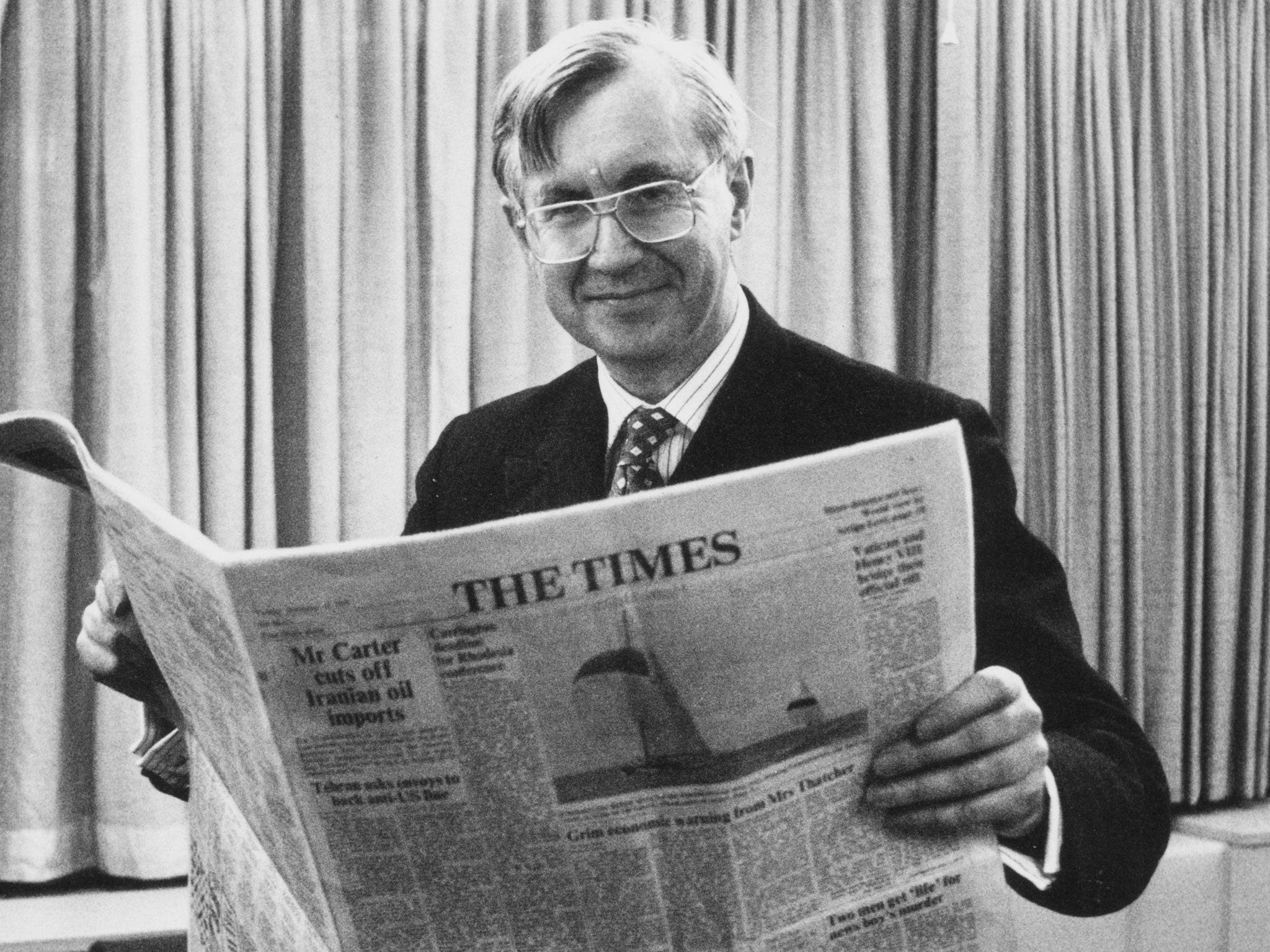Fleet Street legend Lord Rees-Mogg dies
David Cameron pays tribute to his influential Tory colleague and former editor of 'The Times'

William Rees-Mogg, one of the grandest pillars of the English establishment, died yesterday at the age of 84. Tributes were paid to him by the Prime Minister and many politicians and journalists who had been inspired by him.
David Cameron called him "a Fleet Street legend, editing The Times through a tumultuous period with flair and integrity". Rees-Mogg was editor from 1967, when it was bought by the Canadian publisher Roy Thomson, until 1981, when it was acquired by Rupert Murdoch. He was editor in 1978-79 when a dispute over new technology took the newspaper off the streets for 11 months.
Mr Cameron said: "I always found him full of wisdom and good advice – particularly when I first became Leader of the Opposition."
Lord Rees-Mogg was born in Bristol and educated at Charterhouse School and Balliol College, Oxford, where he was president of the Oxford Union. He lived in Somerset and described himself as "a country person who spends most of his time in London".
He worked for the Financial Times, fought a safe Labour seat as the Conservative candidate in 1956, moved to The Sunday Times in 1960 and became editor of The Times at the age of 38. In his early fifties he left the most distinguished job in British print journalism, and continued to write for the rest of his life, producing his last column for The Times just two weeks before his death.
Fraser Nelson, the editor of The Spectator, yesterday recalled the advice Lord Rees-Mogg gave him in 2001: "He said he took inspiration from Ben Johnson's essays: the originals, he said, were still the best." He also told the young Nelson that he had "about six topics on the boil at any one moment. There wasn't time to properly research a topic and write it up in one day, so he'd spend the week working up topics that were interesting." Finally, he said, "you had to love journalism with all your heart: if you lose the sense of excitement, give up".
After editing The Times, Lord Rees-Mogg went on to be chairman of the Arts Council and vice-chairman of the BBC, but he continued to love print journalism with all his heart and to write for the Mail on Sunday and The Times. Because of his prominence, people noticed when some of his predictions turned out to be wrong, although he once said it was not his job to be right but to be interesting.
He was a one-nation Conservative, who co-founded the Bow Group in 1951 with Geoffrey Howe. Ben Harris-Quinney, chairman of the Bow Group, paid tribute to him last night: "He was the model of the intellectual Conservative."
His son, Jacob Rees-Mogg, MP for North East Somerset, said yesterday: "It has been a mercifully short illness. He died peacefully and a member of his family was with him. He was very prepared for it."
Subscribe to Independent Premium to bookmark this article
Want to bookmark your favourite articles and stories to read or reference later? Start your Independent Premium subscription today.

Join our commenting forum
Join thought-provoking conversations, follow other Independent readers and see their replies